Dear WesleyNexus Colleague:
In May, James Gleick, author of popular biographies of Richard Feynman and Isaac Newton, wrote a review of a book called What is Real? The Unfinished Quest for the Meaning of Quantum Physics by Adam Becker. The subtitle of the book points to the fascinating story of the developing understanding of nature at the smallest, most basic level. While decades of research and practical application have shown quantum physics to be profoundly accurate and useful in the development of our technology-driven society, at the foundation of it all is puzzlement and awe. The question is not “can we do the math” but what does the success of the math tell us about the world, what does it mean? Or as Becker states in the book’s introduction, what is the story, “not just the math but the story of the world that goes along with the math.” 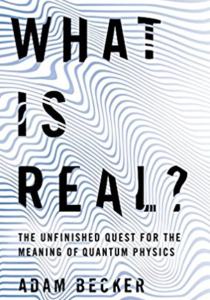 This story affects not only the sciences but echoes well beyond – to the far reaches of our culture including those interested in science and religion.
This story affects not only the sciences but echoes well beyond – to the far reaches of our culture including those interested in science and religion.
Becker does more than just describe the ideas that make up quantum theory for an interested popular audience but lays out the human story of the great scientists that used their genius to craft the theory. As such, we see dynamics reflecting the whole range of human foibles, driving ambition, the developing interpretive orthodoxy resistant to questioning by inquisitive upstarts, and deliberate inhibiting of rivals’ professional careers. At the same time these scientists were truth-seekers, uncovering new ways of seeing how the world works and what is real. The significance of these ideas is clearly stated in the concluding pages of the book where Becker states “the world views we get from our best scientific theories also make their way to the public and inform how we see ourselves…. Science and culture form an undivided whole, now more than ever, in our world whose every corning has been reshaped by human activity. If the past is any guide at all, finding the answer to the puzzle of quantum physics, and finding the next theory beyond it, will ultimately affect the daily lives of every human being, not just the professional lives of physicists.” (p284-285) People who profess the Christian faith will be affected no less than those who live more secular lives. Therefore, engaging the fundamental meaning of science at it’s most basic level is extremely important, for the church and for the broader society. It will inevitably involve discomfort as the answers viewed as adequate in a prior age get recast, redefined, and reaffirmed in a new frame.
In this month’s issue we provide some resources to help engage in thinking of foundations that touch both science and faith.
You will find James Gleik’s NY Times article here.
An additional review can be found here by Tim Maudlin in the Boston Review.
We appreciate the contributions we have received throughout the year. We used most of our funds presenting our Evolution Weekend program on February 11, making it available as a live video feed and recording it so those unable to attend can view it at their leisure. Looking forward, we will continue to develop programs throughout 2018. We will need your support and hope you will consider helping us out. WesleyNexus is a 501(c)(3) charitable, educational organization, and we will acknowledge all gifts from individuals for tax reporting purposes.
Thanks in advance for your support.
God Bless,
Rick, Maynard, and the rest of the
WesleyNexus Board of Directors
*********************************
Science and Theology: Where the Consonance Really Lies by David Bentley Hart
In What is Real? Adam Becker emphasizes the need to dig deep into the philosophical foundations of quantum physics that too often are covered up by the everyday computational mechanics of doing science. 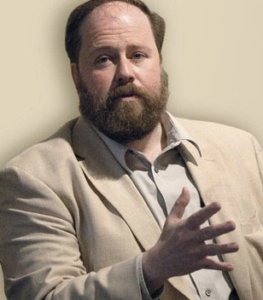 These deep questions are challenging for many thought leaders these days due to their lack of education in philosophy of science which is no longer seen as a requirement for hard science disciplines. In science and theology, the need to think philosophically is essential and goes well beyond Becker’s understanding of the subject. David Bentley Hart is a philosophical theologian who currently is a Templeton Fellow at the Institute for Advanced Study at the University of Notre Dame, and his research focuses on the philosophy of mind, the metaphysics of the soul, Asian literature, ontology, and classical and continental philosophy. He received his Ph.D. from the University of Virginia and has written several books, including The Experience of God: Being, Consciousness, Bliss and The Beauty of the Infinite: The Aesthetics of Christian Truth. In the article found here Hart addresses many of the themes found in the two books just mentioned and challenges the current materialist orthodoxy of our current culture. For Hart “nature proves to be contingent ultimately not on some material substrate or order, but much more originally upon something analogous to mind, spirit, Geist… the infinite plenitude of both being and rational order, in which all finite things participate.” This challenging and compact article points to the spirit and discovery of an intelligible world which emerges at the point of consonance with theology.
These deep questions are challenging for many thought leaders these days due to their lack of education in philosophy of science which is no longer seen as a requirement for hard science disciplines. In science and theology, the need to think philosophically is essential and goes well beyond Becker’s understanding of the subject. David Bentley Hart is a philosophical theologian who currently is a Templeton Fellow at the Institute for Advanced Study at the University of Notre Dame, and his research focuses on the philosophy of mind, the metaphysics of the soul, Asian literature, ontology, and classical and continental philosophy. He received his Ph.D. from the University of Virginia and has written several books, including The Experience of God: Being, Consciousness, Bliss and The Beauty of the Infinite: The Aesthetics of Christian Truth. In the article found here Hart addresses many of the themes found in the two books just mentioned and challenges the current materialist orthodoxy of our current culture. For Hart “nature proves to be contingent ultimately not on some material substrate or order, but much more originally upon something analogous to mind, spirit, Geist… the infinite plenitude of both being and rational order, in which all finite things participate.” This challenging and compact article points to the spirit and discovery of an intelligible world which emerges at the point of consonance with theology.
*********************************
Journeying with Uncomfortable Faith by Rev. Sherwyn Benjamin
This sermon, found here, is the first delivered by Reverend Sherwyn Benjamin to his newly appointed congregation in a distant Maryland suburb of Washington, DC. As Rev. Benjamin describes himself, he is a preacher informed by the black tradition and one who is a contextual preacher. He was trained in an urban seminary and his prior 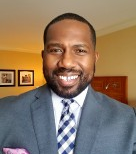 appointment was to an urban church where non-white parishioners were the majority. As a United Methodist preacher, subject to itinerancy, Rev. Benjamin moved his family this summer to the outer suburbs of Washington, DC. Damascus United Methodist Church is a fairly large, mostly white, historically rural church where one still need only drive a few blocks from the center of town to see fields of corn, a tractor supply and the water tower prominently displaying “Damascus” for all to see. In this sermon Rev. Benjamin addresses his new situation head on. Framing his message, Rev. Benjamin states that “faith is about waiting for and following God’s direction… sometimes God’s direction is not the way we would want to go.” But we must be willing to respond in the affirmative. It is a long journey we must take and when we are on a long journey, it becomes fatiguing at times. It will be an adventure that is frequently uncomfortable but an “adventure that will give us great stories.” We must be willing to be open to experience transformation with moments when we are willing to be “faithfully uncomfortable.” In these moments, we must be “willing to sit in our discomfort”, allowing grace to do its work.
appointment was to an urban church where non-white parishioners were the majority. As a United Methodist preacher, subject to itinerancy, Rev. Benjamin moved his family this summer to the outer suburbs of Washington, DC. Damascus United Methodist Church is a fairly large, mostly white, historically rural church where one still need only drive a few blocks from the center of town to see fields of corn, a tractor supply and the water tower prominently displaying “Damascus” for all to see. In this sermon Rev. Benjamin addresses his new situation head on. Framing his message, Rev. Benjamin states that “faith is about waiting for and following God’s direction… sometimes God’s direction is not the way we would want to go.” But we must be willing to respond in the affirmative. It is a long journey we must take and when we are on a long journey, it becomes fatiguing at times. It will be an adventure that is frequently uncomfortable but an “adventure that will give us great stories.” We must be willing to be open to experience transformation with moments when we are willing to be “faithfully uncomfortable.” In these moments, we must be “willing to sit in our discomfort”, allowing grace to do its work.
While this sermon does not explicitly link its message to science and religion, the message of experiencing faith as uncomfortable is important and essential for those of us engaged in the dialogue. If there is to be growth and positive change, there will be uncertainty, discomfort and disorientation. Such is the journey that one takes when one takes seriously the challenges of science and faith. As Becker points out, it is all too easy for scientists as well as persons of faith to settle into a traditional orthodoxy that seems to work so well but remains naively comfortable. You are invited to listen to this sermon and be touched by its message, a message applicable to our science and religion dialogue as well as your daily life. It can be found here.
*********************************
God and Nature website and Summer issue
We want to call attention to the website and monthly articles that are bring generated by Dr. Seymour Garte, a former member of the WesleyNexus Board of Directors and 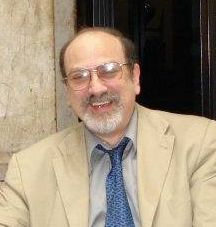 a respected scientist who served for years as Director, Division of Physiological and Pathological Sciences, Center for Scientific Review, National Institutes of Health (NIH). Active as a member of the American Scientific Affiliation (ASA), Garte’s Summer issue of God and Nature can be found here.- https://godandnature.asa3.org/. The main focus for this issue is “Judgment and Peer Review,” with essays from Gareth Jones, Kevin Arnold (of the John Templeton Foundation), James Peterson (Editor of Perspectives in Science and Christian Faith), and Scott Smith. As a bonus for readers new to the website, Garte includes a second topic on “Chance and Design (Redux).” There are four essays on this topic. You will also find an interview about a novel community concept, two poems (by Kaylee Hill and Eugene Lemcio), a photo essay by famed writer Thomas Jay Oord (a member of the WesleyNexus Advisory Board), and the regular column “Across the Pond” by Mike Clifford. The Letter from the Editors features an introduction to the focal topic from Garte’s own point of view as a former NIH official in charge of peer review of grants, as well as information about upcoming issues. Once into the website, if you consider submitting material to God and Nature for publication, please be sure to check out the new information in the Author’s Guidelines in the About tab. Garte always welcomes comments from his readers, so please enjoy this issue and pass the word about God and Nature to friends and colleagues. Garte and some of his regular colleagues will anticipate meeting many of you in a couple of weeks at the ASA meeting near Boston.
a respected scientist who served for years as Director, Division of Physiological and Pathological Sciences, Center for Scientific Review, National Institutes of Health (NIH). Active as a member of the American Scientific Affiliation (ASA), Garte’s Summer issue of God and Nature can be found here.- https://godandnature.asa3.org/. The main focus for this issue is “Judgment and Peer Review,” with essays from Gareth Jones, Kevin Arnold (of the John Templeton Foundation), James Peterson (Editor of Perspectives in Science and Christian Faith), and Scott Smith. As a bonus for readers new to the website, Garte includes a second topic on “Chance and Design (Redux).” There are four essays on this topic. You will also find an interview about a novel community concept, two poems (by Kaylee Hill and Eugene Lemcio), a photo essay by famed writer Thomas Jay Oord (a member of the WesleyNexus Advisory Board), and the regular column “Across the Pond” by Mike Clifford. The Letter from the Editors features an introduction to the focal topic from Garte’s own point of view as a former NIH official in charge of peer review of grants, as well as information about upcoming issues. Once into the website, if you consider submitting material to God and Nature for publication, please be sure to check out the new information in the Author’s Guidelines in the About tab. Garte always welcomes comments from his readers, so please enjoy this issue and pass the word about God and Nature to friends and colleagues. Garte and some of his regular colleagues will anticipate meeting many of you in a couple of weeks at the ASA meeting near Boston.
See the details in the Reminders section below.
*********************************
Must Science Conflict With Spirituality? By Michael Shermer
A Review of Searching for Stars on an Island in Maine by Alan Lightman
Alan Lightman is an astrophysicist, novelist and professor of humanities at M.I.T who was interviewed recently by PBS (see above). An avowed materialist, he none-the-less has written a widely noted book on modern spirituality, one that Michael Shermer (publisher of Sceptic magazine) has called an elegant and moving spiritual quest for 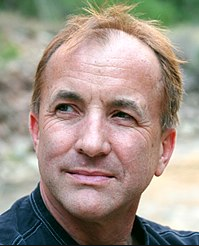 meaning in the age of science. While persons of traditional faith would certainly take issue with the presupposition of materialism, the experience of awe and mystery described is a universal experience shared by many. How it is interpreted and integrated into the story becomes a world view; it varies and becomes the point of dialogue, even between people of faith and sceptics. The article can be found here.
meaning in the age of science. While persons of traditional faith would certainly take issue with the presupposition of materialism, the experience of awe and mystery described is a universal experience shared by many. How it is interpreted and integrated into the story becomes a world view; it varies and becomes the point of dialogue, even between people of faith and sceptics. The article can be found here.
In a recent PBS interview, Alan Lightman took five minutes to present his ideas to the global audience of the News Hour. The interview can be found here.
*********************************
Artificial Intelligence Turns Deep: Who’s in Control – The IRAS 2018 Summer Conference
This was the theme and framework for the 64th Annual Conference of the Institute on Religion in an Age of Science (IRAS) on Star Island June 23-30, 2018. The discussion fits perfectly into the substance of this newsletter. From the earliest myths of artificially-created beings until today, the question of “who’s in control” has troubled us. Now it looks like we’re really going to have to deal with it in our lifetimes. On the 50th anniversary of the film 2001: A Space Odyssey, IRAS returned to considering the prospects, opportunities and dangers of Artificial Intelligence (AI), first presented at an IRAS summer conference in 1968 by Marvin Minsky, a founder of AI research and consultant to Stanley Kubrick and Arthur C. Clarke as they directed and created 2001.
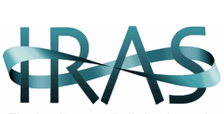 This conference considered issues such as neural networks, machine ethics, robotic consciousness and advances in big data manipulation – all of which are leading to rapid progress in machine learning and associated capabilities. Investment in AI will grow more than 30 times between 2016 and 2020, to at least a $50 billion industry. New AI products will enhance sales, data analysis, and diagnostic and predictive services for medicine, government, science and industry. We are on the cusp of creating machines that can operate in environments that require significant autonomy, such as self-driving vehicles and, ominously, weapon systems. The future of AI is likely to have powerful consequences related to jobs, income distribution, criminal and social justice and our polity in general. This growing international commercial and governmental juggernaut, itself subject to concentrated and frequently unaccountable control, presents just one of AI’s many challenges. How will humans identify themselves and find meaning in life as the breadth of skills unique to living, sentient beings shrinks? The consequences of the interplay of AI and the human mind, and our very self-concepts, are likely to be equally profound. If we succeed in creating science fiction’s “conscious” machine, what would be our duties to it (as well as its duties to us)? The values and orientations fostered by a religion and science perspective will be crucial to the responsible development and utilization of AI technology as it unfolds.
This conference considered issues such as neural networks, machine ethics, robotic consciousness and advances in big data manipulation – all of which are leading to rapid progress in machine learning and associated capabilities. Investment in AI will grow more than 30 times between 2016 and 2020, to at least a $50 billion industry. New AI products will enhance sales, data analysis, and diagnostic and predictive services for medicine, government, science and industry. We are on the cusp of creating machines that can operate in environments that require significant autonomy, such as self-driving vehicles and, ominously, weapon systems. The future of AI is likely to have powerful consequences related to jobs, income distribution, criminal and social justice and our polity in general. This growing international commercial and governmental juggernaut, itself subject to concentrated and frequently unaccountable control, presents just one of AI’s many challenges. How will humans identify themselves and find meaning in life as the breadth of skills unique to living, sentient beings shrinks? The consequences of the interplay of AI and the human mind, and our very self-concepts, are likely to be equally profound. If we succeed in creating science fiction’s “conscious” machine, what would be our duties to it (as well as its duties to us)? The values and orientations fostered by a religion and science perspective will be crucial to the responsible development and utilization of AI technology as it unfolds.
The thoughtful plenary presentations at this conference challenged everyone to think differently about our future: Dr. Solomon H. Katz, Program Co-Chair of the conference, emeritus director and professor at the Krogman Center for Child Growth and Development at the University of Pennsylvania, kicked things off by addressing the recent technological history of AI, the socio-economics of our current system of business, and the rapid proliferation of this new technology. Bruce Naylor, a computer scientist whose company focuses work on the computational simulations of the real world, said we are facing a world characterized by “artificial everything,” stimulated by sensory synthesized technology whose capacities for algorithmic innovation is rapidly trending toward an Augmented Reality that exceeds human intelligence. Mark Graves, visiting research professor at the University of Norte Dame Center for Theology, Science and Understanding, addressed the issue of machine ethics by outlining a system of moral theology that embraces artificial intelligence and advances human self-understanding. Randall Reed, associate professor of religion at Appalachian State University, analyzed the way that religion in the past has encompassed others into its circles of influence, suggesting that we think differently about the coming relationships with artificial intelligence.
If this was not enough to scramble our brains, by the third day of this week-long conference we were challenged anew. Dr. Terrance W. Deacon, Co-Chair of the Conference and professor of anthropology and cognitive science at the University of California, Berkeley, suggested that we admit we are a gullible species prone to self-deception. He said, “in this dawning age of intelligent machines, we find many of our best minds convinced that we are creating sentient artifacts, that if it walks like a duck and quacks like a duck then it must be a duck, despite knowing that this is a mere simulacrum of duck behavior produced using radically non-duck components and processes.” Deacon pointed to the golem myth from Jewish folklore to ask “How do you tell a golem from a person, a simulation from a subject, an automaton from an agent?”
This presentation was followed by a presentation by Ilia Delio,OSF, our Conference theologian and professor of theology in the Josephine C. Connelly Endowed Chair at Villanova University, speaking on “Techno-Anxiety and the Scattered Mind: Can We Reclaim our Freedom?” She asked, “why do we consistently surrender our personal freedom to the power of Google?” She explored the “bifurcated mind” in terms of our loss of interiority in the face of our current “technological AI frenzy,” and explored the possibility before us of embracing the approach of A. N. Whitehead and Jesuit paleontologist Teilhard de Chardin to overcome our desperation and look within to rediscover our gift of personal freedom. By the fifth day, the discussion had taken on a new sense of optimism about the future, culminating in an impromptu afternoon dialogue between Terry Deacon and Ilia Delio that was a rich discussion of implications of the conference theme.
The 2019 IRAS Summer Conference will move to the next level of discussion, focused on the theme “Bioengineering, Gene Editing, and the Human Future: The CRISPR Apple on the Tree of Knowledge.” The 65th IRAS Star Island Conference takes place in 2019 on June 22 thru 29th, with Program Co-Chairs Arvin Gouw of Stanford University and Ted Peters of the Graduate Theological Union, Berkeley organizing the program. We urge all participants in the WesleyNexus dialogue to consider putting these dates on your calendar now. More to come during the year.
*********************************
Could the Universe Cause Itself? By Timothy Dalrymple, PhD
“We exist. A world around us exists. Why? Why is there something rather than nothing? Where did it all come from? Has it always existed, or did it come into existence? These are fundamentally empirical questions, deeply embedded in philosophical categories, with enormous ethical and theological implications.”
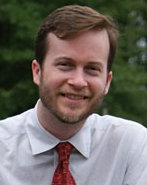 Timothy Darlymple is the editor of Obiter Magazine who’s most recent article addresses the cosmic riddle of why we exist, or why anything exists? In it he sits down with two physicists at the World Science Festival, Neil Turok and Michael Doser. Turok summarizes a developing theory that proposes “a mathematical model, in which, as the universe in which we reside was pulled into existence, an anti-universe was also pulled into existence. It precisely parallels the creation of an electron-positron pair.”
Timothy Darlymple is the editor of Obiter Magazine who’s most recent article addresses the cosmic riddle of why we exist, or why anything exists? In it he sits down with two physicists at the World Science Festival, Neil Turok and Michael Doser. Turok summarizes a developing theory that proposes “a mathematical model, in which, as the universe in which we reside was pulled into existence, an anti-universe was also pulled into existence. It precisely parallels the creation of an electron-positron pair.”
If we traveled to the beginning of our universe, this anti-universe would appear to be the cause of our universe and conversely, our universe would appear to be the cause of the anti-universe. Kind of what goes around, comes around. An interesting story but, as David Bentley Hart has pointed out in numerous books, it does not solve the ultimate, ontological question of being. So the mystery remains, though we may be one small step closer to the infinite edge. The article can be found here.
*********************************
Does Science Support Belief in God? a note from John B. Cobb, Jr.
The Wesleyan tradition is frequently classified as evangelical or holiness and this certainly captures part of the tradition that began nearly three hundred years ago. Too 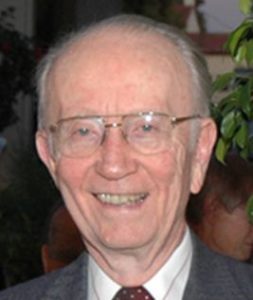 often, evangelical is assumed to be either indifferent to science or outright hostile to it. Even though John Wesley was certainly one who was interested in and affirming of the science of his day (see our John Wesley and Science http://wesnex.org/john-wesley-and-science/ ) many within the tradition are unaware that Methodism has been supporting the pursuit of science and engaging in the science and religion dialogue for decades. John B. Cobb, who received his Ph.D. in 1952 from the University of Chicago, has been one of the founders of process theology. He was the Igraham Professor of Theology at Claremont School of Theology and Avery Professor of Religion at Claremont Graduate University as well as the co-founder of the Center for Process Studies, all with deep ties to Methodism. In this article, Cobb presents a process view of the God/world relationship. “The world that science studies does give evidence that there is a universal spiritual power, intelligent and purposeful, working always and everywhere to realize what value there can be. Acceptance of that belief is no threat to the freedom of scientists or the advance of scientific research. Indeed, it could free science from the absurdities to which it has committed itself.” The article can be found here.
often, evangelical is assumed to be either indifferent to science or outright hostile to it. Even though John Wesley was certainly one who was interested in and affirming of the science of his day (see our John Wesley and Science http://wesnex.org/john-wesley-and-science/ ) many within the tradition are unaware that Methodism has been supporting the pursuit of science and engaging in the science and religion dialogue for decades. John B. Cobb, who received his Ph.D. in 1952 from the University of Chicago, has been one of the founders of process theology. He was the Igraham Professor of Theology at Claremont School of Theology and Avery Professor of Religion at Claremont Graduate University as well as the co-founder of the Center for Process Studies, all with deep ties to Methodism. In this article, Cobb presents a process view of the God/world relationship. “The world that science studies does give evidence that there is a universal spiritual power, intelligent and purposeful, working always and everywhere to realize what value there can be. Acceptance of that belief is no threat to the freedom of scientists or the advance of scientific research. Indeed, it could free science from the absurdities to which it has committed itself.” The article can be found here.
*********************************
Reminders:
ASA Annual Meeting, Gordon College, Wenham, MA, July 27-30,2018
The theme of the Annual Conference of the American Scientific Affiliation is “Bioethics and Biotechnology,” scheduled over a four day period July 27-30 at Gordon College near Boston. The theme is important and timely. Major confirmed plenary speakers include Francis S. Collins, MD, PhD, a physician-geneticist noted for his landmark discoveries of disease genes and his leadership of the international Human Genome Project, which culminated in April 2003 with the completion of a finished sequence of the human DNA instruction book. Since 2009 he has served as the director of the National Institutes of Health, the largest supporter of biomedical research in the world, spanning the spectrum from basic to clinical research; Nigel M. de S. Cameron PhD, MBA, the founder and president emeritus of the Center for Policy on Emerging Technology in Washington DC. He is also the Technology/Futures editor at UnHerd.com. In the 1990s he served as Distinguished Professor of Theology and Culture at Trinity Evangelical Divinity School, and more recently he was a research professor and associate dean at Chicago-Kent College of Law in the Illinois Institute of Technology. In 2016 he was Fulbright Visiting Research Chair in Science and Society at the University of Ottawa, Canada; Noreen Herzfeld, the Nicholas and Bernice Reuter Professor of Science and Religion at St. John’s University and the College of St. Benedict. She holds degrees in computer science and mathematics from the Pennsylvania State University and a PhD in theology from the Graduate Theological Union, Berkeley. Herzfeld teaches courses in both the Department of Computer Science and the Department of Theology at St. John’s University and the College of St. Benedict, reflecting her two primary research interests; Douglas A. Lauffenburger, Ford Professor of Bioengineering and (founding) head of the Department of Biological Engineering at MIT. His major research interests are cell engineering: fusion of engineering with molecular cell biology, with central focus on systems biology approaches to complex pathophysiology in application to drug discovery and development; Jeff Schloss received his PhD in ecology/evolutionary biology from Washington University. He is currently senior scholar at the BioLogos Foundation and distinguished professor and T. B. Walker Chair of Biology at Westmont College, where he also directs the Center for Faith, Ethics & Life Sciences. Space is still available for late registrants. Go to the ASA website, http://asa3.org for more information on registration and housing.
*********************************
The Inside Story: Consciousness, Nature, Transcendence
A transdisciplinary conference on Mind, Matter, Meaning and Mysticism
November 9-10, 2018
Sponsored by Villanova University, Department of Theology & Religious Studies, Connelly Chair in Christian Theology, the Augustinian Institute, Department of Philosophy, and Halloran Philanthropies.
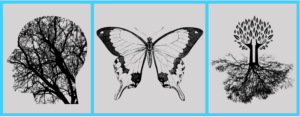 Descartes’ famous dictum—I think, therefore I am—gave rise to the modern distinction between mind and matter. But “the inside story” is more complex and thrilling—possibly uniting mind and matter, meaning and mysticism.
Descartes’ famous dictum—I think, therefore I am—gave rise to the modern distinction between mind and matter. But “the inside story” is more complex and thrilling—possibly uniting mind and matter, meaning and mysticism.
Join the in-depth exploration of consciousness, nature, and transcendence, as scientists, philosophers, and theologians ask “What’s on the inside?” Keynote speakers include Philip Clayton, WesleyNexus Advisory Board Member and author of numerous books related to science and religion, including The Predicament of Belief and Mind and Emergence; Ilia Delio, a long time friend of WesleyNexus, past member of the Washington Theological Consortium Science and Religion Study group and author of Christ in Evolution; Timothy O’Connor, Distinguished Professor of Philosophy at Baylor University in Waco, Texas and author of Theism and Ultimate Explanation: The Necessary Shape of Contingency and Persons and Causes: The Metaphysics of Free Will; and Terrence Deacon, neuroanthropologist, Professor of Biological Anthropology at the University of California, Berkeley and author of Incomplete Nature: How Mind Emerged from Matter.
More information on the program can be found here:
https://www1.villanova.edu/villanova/artsci/theology/news_events/inside-story-conference/about.html
